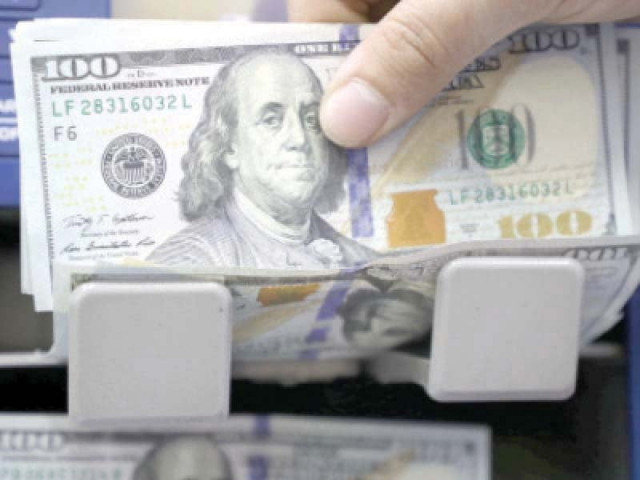Deficit to fall below $10b: SBP chief
Current account deficit projection is nearly half of World Bank forecast

Pakistan’s central bank governor has said that the current account deficit is expected to remain well below $10 billion in the current fiscal year, a statement that suggests that the devastating floods will not adversely impact the external financing requirement.
The projected deficit of $10 billion (less than 2.3% of gross domestic product – GDP) is nearly half of the latest forecast of 4.3% deficit by the World Bank. This can ease pressure on the exchange rate.
State Bank of Pakistan (SBP) Governor Jameel Ahmad said on Friday that the country would annually save $500 million due to fresh restrictions on the use of credit and debit cards.
These curbs came amid the government and central bank’s efforts to maintain a decent level of foreign exchange reserves.
“In light of the fresh balance of payments data, the current account deficit is now expected to remain far below $10 billion,” he told The Express Tribune after a meeting of the Senate Standing Committee on Finance.
The country booked a $2.2 billion current account deficit in the first quarter of current fiscal year, down by 37%.
In terms of the size of economy, the deficit can stand at 2.3% of GDP in the current fiscal year, which is even better than the central bank’s earlier forecast in which it estimated the deficit at around 3% of GDP.
Any improvement in the current account deficit will reduce the foreign borrowing requirement by the same amount. The improvement is crucial for Pakistan’s economy, particularly at a time when it is not getting any significant support from the International Monetary Fund (IMF) despite being in a fund programme.
In its latest Pakistan Development Update 2022, the World Bank projected the current account deficit at 4.3% of GDP, or around $17 billion.
In fiscal year 2021-22, Pakistan booked a $17.4 billion deficit, which was equal to 4.6% of GDP, the highest in four years.
“Impact on the current account deficit is likely to be muted, with pressures from higher food and cotton imports and lower textile exports largely offset by slower domestic demand and lower global commodity prices,” read the last monetary policy statement.
This week, the central bank imposed fresh restrictions on the outward flow of dollars and their purchase from the local market in addition to limiting the use of debit and credit cards.
In response to a question, Ahmad said that credit card transactions had reached $1.4 billion, which after the fresh measures, would come down by $500 million.
Businessmen had started using the plastic money for small offshore settlements after the central bank imposed severe restrictions on opening of letters of credit (LCs) for import.
The SBP governor told the Senate Standing Committee on Finance that 8% to 10% of imports were under some kind of restrictions.
Foreign exchange reserves slipped to $7.9 billion last week after Pakistan made a $500 million commercial loan repayment to China. A senior finance ministry official said on Friday that the process to refinance the $500 million Chinese commercial loan has already begun.
Due to the gap between demand and supply of dollars, the commercial banks have made undue profits on account of foreign exchange earnings that are now under the scrutiny of the central bank.
Ahmad also gave an updated status in an ongoing investigation against the eight commercial banks.
“The investigation is still going on and will be completed this month,” said the Governor, adding that the banks took higher dollar rates for opening the letter of credits.
The eight banks had been picked for inspection based on their trade volumes and substantial profits that they made till the end of June. The banks quoted very high rates on some of the transactions, which created more volatility and uncertainty.
“If we press the banks harder, they may stop opening letter of credits by arranging dollars from other sources, as there is a gap between demand and supply,” noted Ahmad while responding to a question about showing leniency to the commercial banks.
He informed that the central bank has instructed the banks to charge a “reasonable premium” on the dollars arranged from other sources. To a question, the Governor replied that the SBP would act against commercial banks once full information is available.
Published in The Express Tribune, November 12th, 2022.
Like Business on Facebook, follow @TribuneBiz on Twitter to stay informed and join in the conversation.


















COMMENTS
Comments are moderated and generally will be posted if they are on-topic and not abusive.
For more information, please see our Comments FAQ